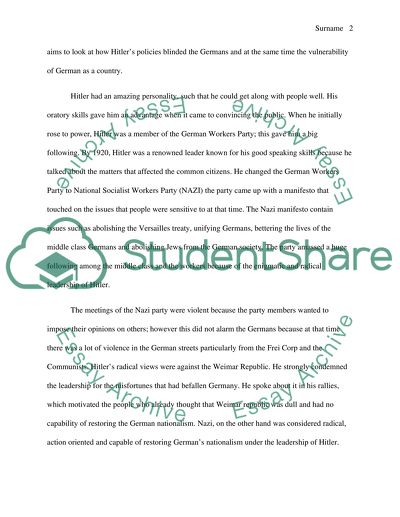Cite this document
(“What lead the German people to fully accept Hitler's views on how Essay”, n.d.)
What lead the German people to fully accept Hitler's views on how Essay. Retrieved from https://studentshare.org/history/1476666-what-lead-the-german-people-to-fully-accept
What lead the German people to fully accept Hitler's views on how Essay. Retrieved from https://studentshare.org/history/1476666-what-lead-the-german-people-to-fully-accept
(What Lead the German People to Fully Accept Hitler'S Views on How Essay)
What Lead the German People to Fully Accept Hitler'S Views on How Essay. https://studentshare.org/history/1476666-what-lead-the-german-people-to-fully-accept.
What Lead the German People to Fully Accept Hitler'S Views on How Essay. https://studentshare.org/history/1476666-what-lead-the-german-people-to-fully-accept.
“What Lead the German People to Fully Accept Hitler'S Views on How Essay”, n.d. https://studentshare.org/history/1476666-what-lead-the-german-people-to-fully-accept.


